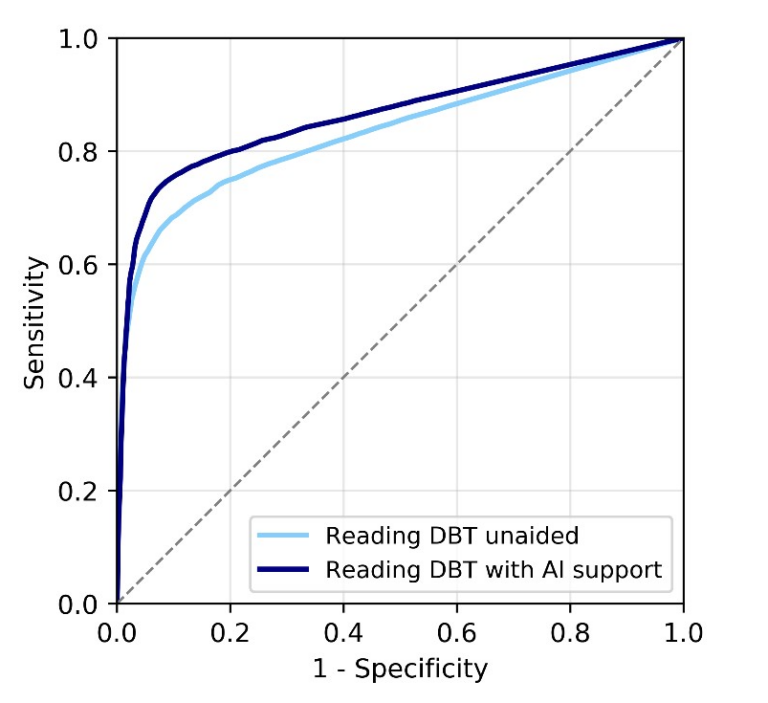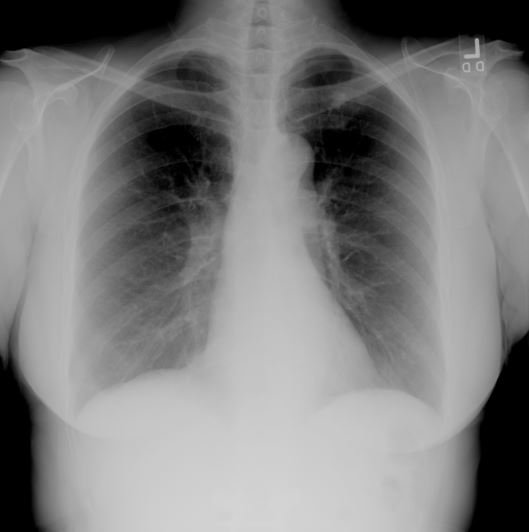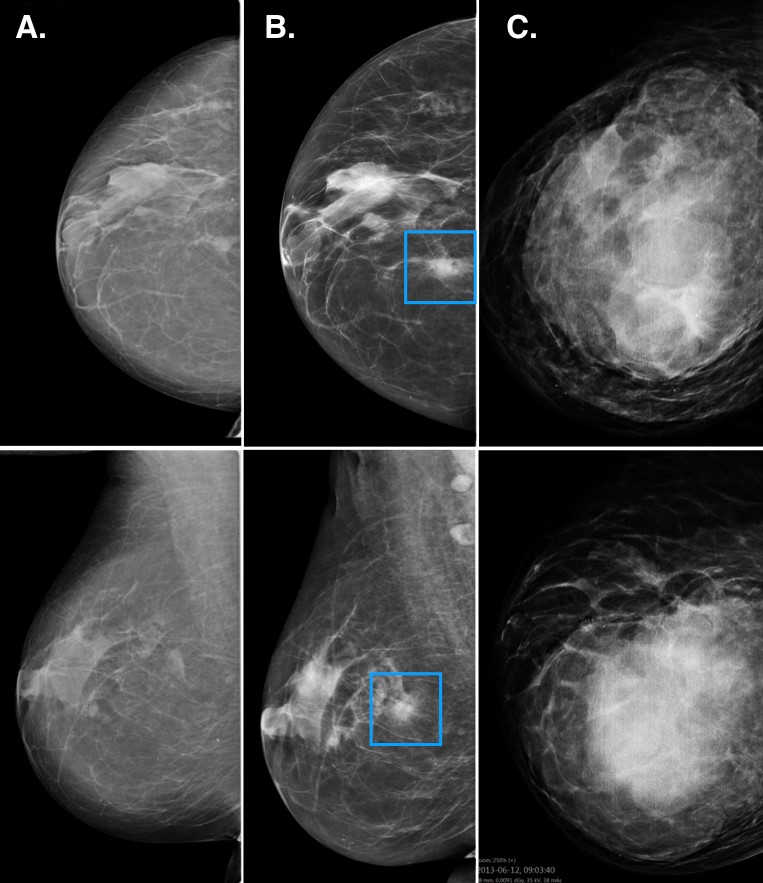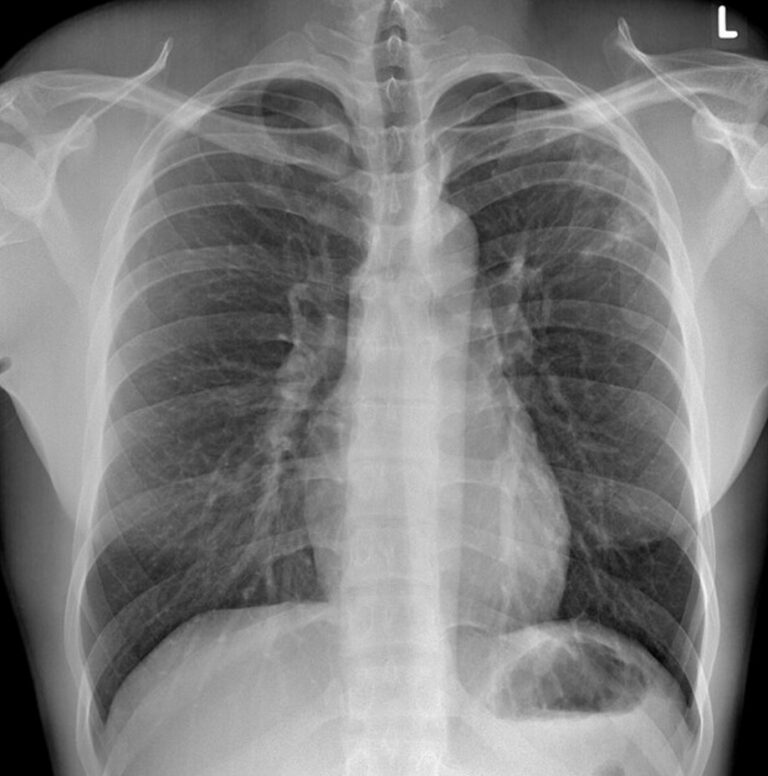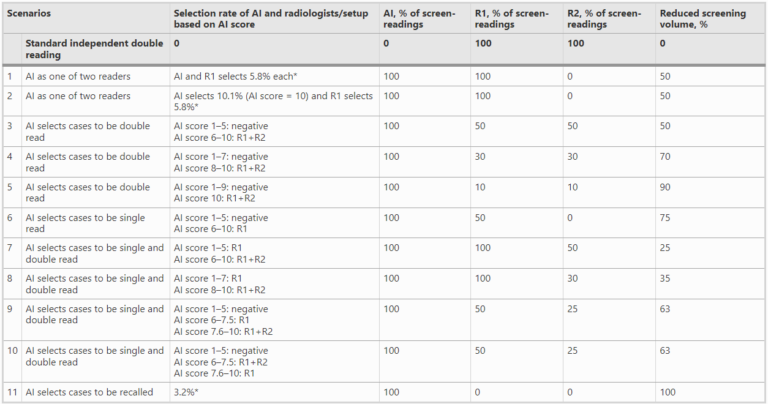
Possible strategies for use of AI in screen-reading of mammograms
After publishing the overall performance results of an AI system in Radiology (Artificial Intelligence Evaluation of 122,969 Mammography Examinations from a Population-based Screening Program), we explored different possible strategies for using AI in the screen-reading of mammograms. We presented estimated cancer detection rates for 11 different possible ways of implementing AI mammography screening. However, with different thresholds for selecting cases










